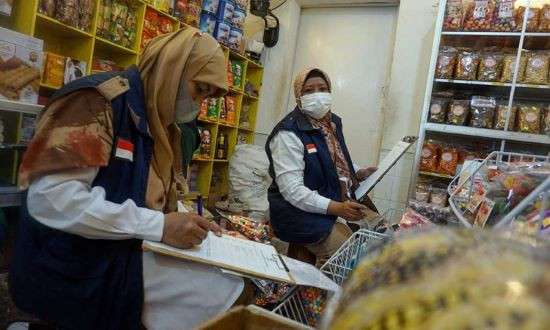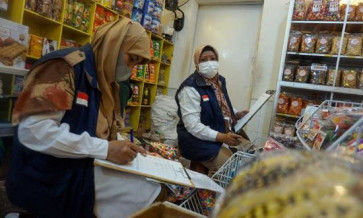Popular Reads
Top Results
Can't find what you're looking for?
View all search resultsPopular Reads
Top Results
Can't find what you're looking for?
View all search resultsStrengthening Indonesia’s reputation in food and drug supervision
One of the biggest challenges facing Indonesia’s pharmaceutical industry is its dependence on imported raw materials.
Change text size
Gift Premium Articles
to Anyone
F
ood and drug control has a very important role in maintaining public health and improving the competitiveness of national industries. The Food and Drug Administration (BPOM) shoulders this critical responsibility, as outlined in Presidential Regulation No. 80/2017.
The BPOM’s mandate extends beyond protecting domestic consumers from hazardous products; it plays a strategic role in safeguarding Indonesia’s global reputation by rigorously supervising export products that reflect our nation’s standards and values.
Food and drug control in Indonesia stands on three foundational pillars: business actors, the government and the community. These pillars must collaborate effectively to ensure that all products meet stringent safety and quality standards.
The first pillar comprises business actors, including manufacturers, distributors and retailers. These entities bear the primary responsibility for ensuring that their products are safe for consumers.
To this end, businesses are required to implement robust internal control systems, such as good manufacturing practices (GMPs), which are recognized globally. GMPs encompass a set of procedures and practices designed to ensure that products are consistently produced and controlled according to quality standards.
The BPOM has set stringent GMP standards, particularly for the pharmaceutical and food industries. However, many small and medium enterprises (SMEs) struggle to comply due to financial constraints and limited technical expertise. To support these businesses, the BPOM offers technical guidance and licensing fee waivers, enabling SMEs to meet these standards and enhance their competitiveness in both domestic and international markets.
The second pillar is the government, represented by the BPOM, which is responsible for overseeing and regulating food and drug safety. The BPOM operates 76 Technical Implementation Units (UPT) throughout Indonesia, including 34 BPOM offices in provincial capitals and 42 BPOM offices at the district or municipality level. These units are equipped with advanced laboratories capable of conducting precise and reliable product testing, which forms the backbone of monitoring and supervising products circulating in the community.


















